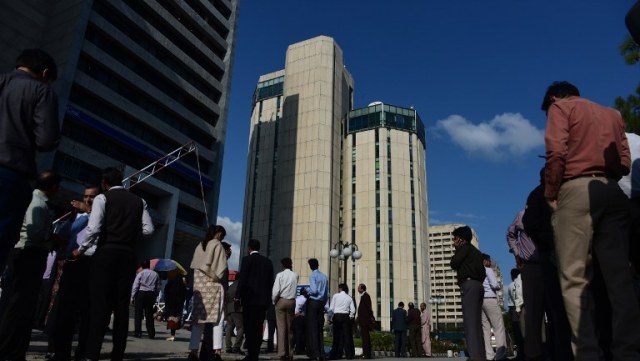As many as 0.6 million Pakistanis “will lose their jobs by July 2019”, Pakistan Muslim League-Nawaz (PML-N) leader Mohammad Zubair Umar has claimed amid questions being raised over the government’s efforts for the uplifting of the country’s economy.
“Unemployment is rising by the day and it is expected that by end of the fiscal year, 600,000 Pakistanis will have lost their jobs,” Zubair said in a statement issued after the Pakistan Tehreek-e-Insaf (PTI) government completed 200 days in centre.
Due to the poor economy, he added, more than four million people “will also go below the poverty line”.
WATCH THE VIDEO INSTEAD:
The claims, however, were refuted by Minister of State for Revenue Hammad Azhar, who termed Zubair’s statement “the worst case of inaccurate numbers and half-truths”.
“Pure conjecture. With private sector borrowing up and exporters gearing up for higher productions and foreign investors showing unprecedented interest, Pakistan is readjusting for investment and employment-led growth,” Azhar said.
He further stated the most comprehensive and consolidated poverty alleviation programme was being developed by the government and there was no truth to Zubair’s statement regarding millions of people going below the poverty line.
With the row between members of the ruling PTI and PML-N continuing, The Current reached out to a Lahore-based political economist and public policy professional Rahema Hasan for the validity of either side’s claims.
“People may not be losing their jobs by the end of the fiscal year, but it’s the number of people entering the labour force annually, which will add to the unemployment rate,” she said.
“Unemployment figures are high for Pakistan, but estimations need to be made on concurrent information and not perceptions,” she said and added that such claims could discourage private sector investment confidence and put pressure on public resources.
On the other hand, the government needs to put down estimations of how much employment is expected out of the investment coming to Pakistan; for example, 1,000 jobs per every $100 million invested in the agriculture sector, Rahema said further.
“Perception is a key to economic decision making, however, necessarily based on incomplete and unverified information, it is equated with reality for most practical purposes and guides human behavior,” she said.
Rahema was of the view that mere assumptions and political gimmicks could have devastating effects on economic decision-making.







